Slow.
🐢
Going slow has never been my strength — unless it comes to running in which case nature and years of (unfortunately) ignoring exercise help me to excel in avoiding speed. But even as I slog down the coastal trail near our home, my mind often races.
I’d like to blame work for making me this way — a decade of sitting in a chair, demanding my brain work quickly on some technical issue — but I think it’s more likely that this is just how I am, and I managed to find work that aligned with this natural desire for speed.
After blinking through the last ten years of maximum speed, however, I have finally awakened to the joy of going slow.
Straight out of grad school I found myself working for SpaceX, out at Vandenburg AFB in the summer of 2012. The site was in the throes of deep civil, mechanical, and electrical construction, having only recently started conversion from a mothballed Titan pad1 toward a Falcon 9 pad. Our team was understaffed, young, and eager to prove ourselves. SpaceX was happy to feed that desire with a never-ending list of tasks that made up the near-intractable individual challenges of building launch pad systems. Everything from fuel systems, to hydraulic that could lift millions of pounds, to electrical, data, and everything in-between. Of course, we also did it all in hard mode with tight timelines and even tighter budgets.
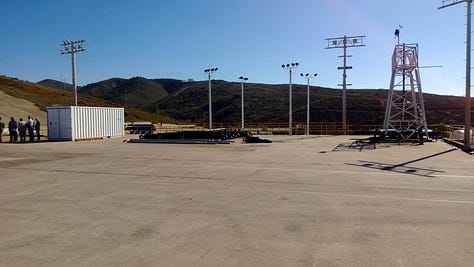

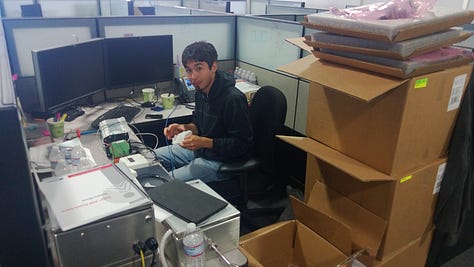
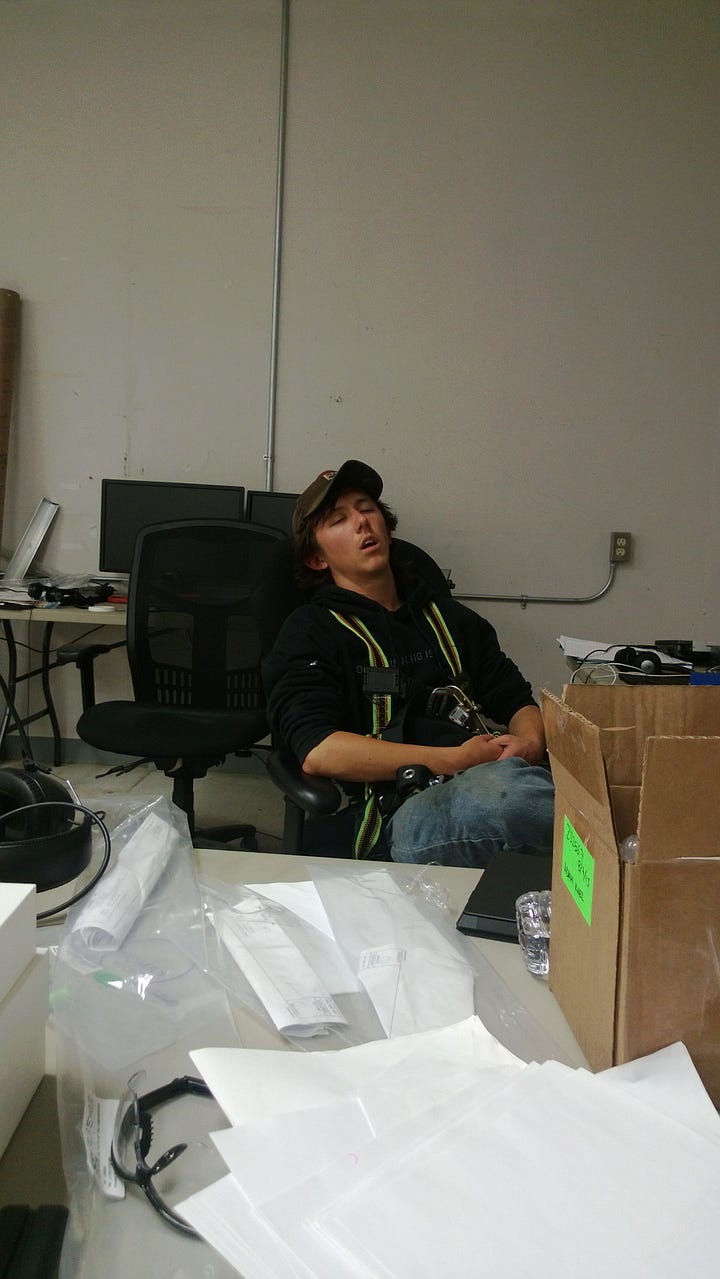

After the first successful launch from that site, I found myself (through a bit of a circuitous route) first in Morgan City, Louisiana and shortly after in Jacksonville, Florida developing the landing barges “Just Read the Instructions” and “Of Course I Still Love You.”
Oh, boy, did the speed kick in then. We were in a race against ourselves to develop landing barges that could go out to sea, catch a first stage of a Falcon 9 falling from the edge of space, then return it back across the ocean in one piece.2 As I look back on my time living out of a suitcase in a hotel for a year, working from a mobile home on cinder blocks with a cellphone hotspot tether, and sweating it out every day in the bayou, I realize that as the project ramped up, I traded the complexity of life for velocity.
By going as fast as I could, I believed that I could outrun my problems — and most importantly, the loud doubting voice in the back of my mind. The one that told me I could hack it, I wasn’t good enough, and that the only way to worthiness was through an impossible task. There was no room for weekends, or dates, or even much thinking; which was exactly how I liked it then. If I was at work, my thought cycles were occupied. I could avoid myself all day while I worked to outrun life itself.
As I went faster and faster, I rolled my eyes at all people that “couldn’t keep up.” That included friends who fell by the wayside, connection time with my extended family, and even my first marriage. No one understood the importance of the work, I told myself. Of course, no one at work was ever going to challenge me to slow down — they challenged me to speed up!
“The tragedy with velocity as the answer to complexity is that, after a while, you cannot see or comprehend anything that is not traveling at the same speed you are. And you actually start to feel disturbed by people who have a sense of restfulness to their existence.”
- David Whyte
I always imagined that all the vendors, truck drivers, contractors, and port workers who witnessed us running around the cruise terminal like a bunch of chickens with our heads cut off, flitting from task to task, and melting down because a critical delivery was going to be an hour late, were all shaking their heads in admiration. “How do these guys do it all?” I thought they would ask themselves.
Now, I chuckle and realize they were watching a bunch of 20-something dudes sprint around like maniacs, wearing the same clothes every day, obsessed with finding a vendor who could do something one day faster, all while nursing spent adrenal glands and coping with having cortisol shoot through our arteries to kill a racehorse. Put simply, I realized they weren’t shaking their heads in admiration.

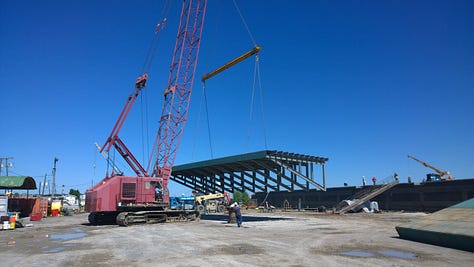


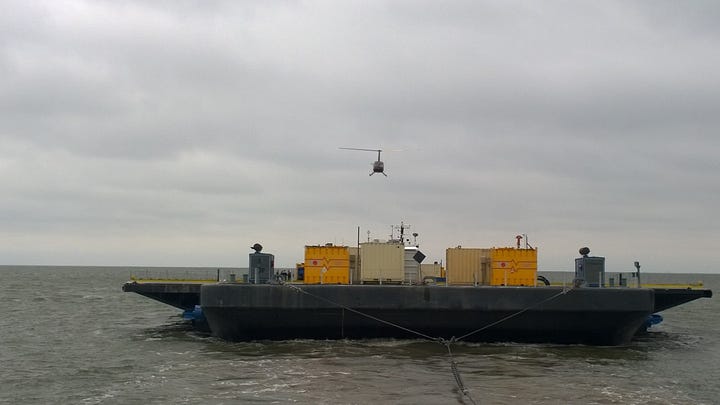
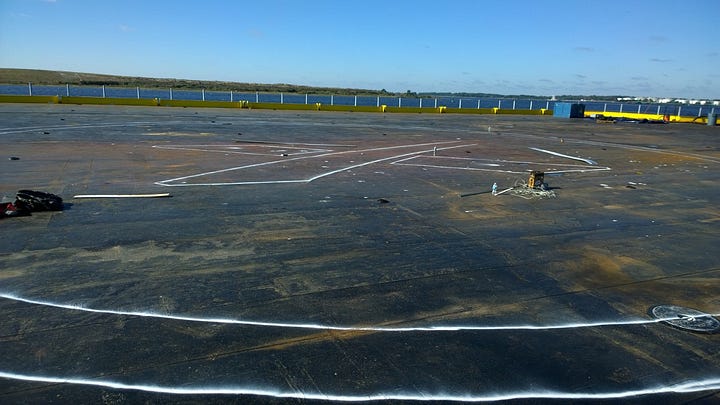
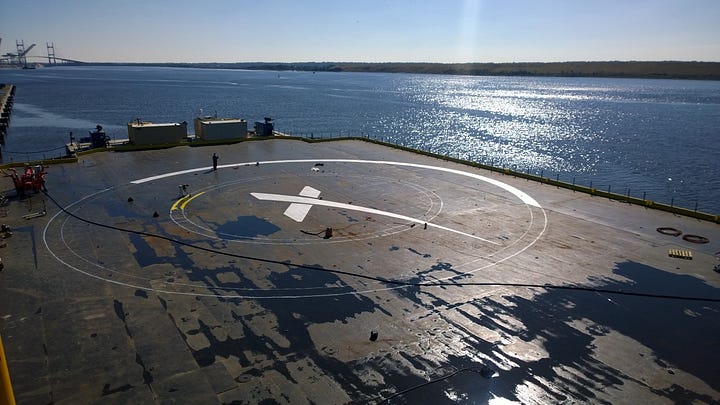
After leaving SpaceX for good and starting The Launch Company, the need to rush around began to feel existential. I believed that if I didn’t go all out, I would die. By that point I wanted to slow down, but I told myself that I simply couldn’t afford it. I went faster than ever, and found gears I didn’t know I had. During the first couple years as an entrepreneur, the company survived only a few weeks at a time as I strung together contracts and tried to keep projects in the queue. Late at night, I’d often stare at the ceiling watching the fan turn, adding up the invoices I knew were due along with the little bit of cash on hand, then subtracting things like payroll and rent. As long as the number I came up in my mind was above zero, I managed to fall asleep. I used to call this the “Thermodynamic Approach to Business Building.”
It wasn’t sustainable, and it sure wasn’t fun.
Slow is Smooth, Smooth is Fast
In short order, I burned out fully. However, somehow around the same time, the company achieved some momentum and stabilized a little bit. It wasn’t yet a success, but it at least wasn’t on life support. We were growing, adding clients, and extending our runway. This meant that, after nearly a decade in the aerospace industry, I could finally start experimenting with slowing down.
It wasn’t natural. In fact, truth be told, it took years of therapy (and still takes periodic reminders) to achieve. I struggled to let go of the illusion of control, the thought that my constant attention was what enabled our company’s success, and the idea that the team always needed me engaged. Finally, though, I realized that my team didn’t need me at my most they needed me at my best. My best wasn’t working 12-hour days. My best wasn’t stressing over every small detail. My best came when I was rested, centered, calm, and engaged. That meant slowing down.
So, I did. And along the way I discovered that rested, recovered me got to enjoy other benefits, too. I started to dream in color again. Hard things felt easier, my creativity exploded, and my attitude improved, too! My resiliency, and by extension the resiliency of the team, went through the roof. Things that used to cause scattered panic or felt insurmountable, became easier to handle. It sounds obvious, maybe even silly to say out loud, but I don’t see many people talking about moving slow, let alone actually doing it, so I guess it has to be said!
Then, this summer, I left my company entirely. I completed the final portion of the acquisition that happened in 2021 and found myself, again, on the threshold of the new. And let me tell you, the existential scarcity came back with a fury. I felt consumed by a regressive desire to go fast, again, at nothing in particular. Luckily, I’d done just enough work to learn how to notice it, and spent the summer counteracting the urge. Truthfully, the kids asking me to go to the park, ride bikes, or do some other fun activity during the span of Alaska summer helped me to stay present and avoid old habits.
Here’s the Thing
We don’t trumpet the benefits of fast food. No one thinks that’s a healthy meal or something that should be a habit. So why is everyone trying to get you to do fast business? Simple. Because speed leads to a feeling of scarcity, which the #hustlebros can exploit for clicks and revenue. Ignore it; starve the #hustlebros and their wannabe alpha male grindset. Even at our most manic on the launch pad, or the barge, we would have laughed that shit off the site.
Speed also narrows our aperture. We miss signposts, we blow past opportunities. We get to the end faster, whatever that may be, but we don’t necessarily get to the best. Why is that? Because we assume that more means best. But more isn’t best. Best is best! We get to our best by moving carefully, thoughtfully, and creating space. We give ourselves time to consider how things are going, and the opportunity to circle back to change things that don’t feel right. We learn in real time, and we share those learnings with our team. Relax. Take a breath.
A Disclaimer on Slow
When I talk about moving slow, I am still talking about making positive progress. That includes rest, or even stepping away for a while to get perspective. But what it does not include is analysis paralysis. Things like procrastination, waffling, and leaving tasks undone all slow things down, but not in a healthy way. In fact, they just create more stress! Funny enough, those actions are often a symptom of trying to move too fast for too long, and can be counteracted by taking time away then coming back with a sensible plan.
Once, my dad and I were flying through a narrow mountain pass late at night in the winter on a cargo run to western Alaska. As we trundled along in the dark, he looked over at me and said, “Imagine we were out here, lost, with worsening weather, overloaded, low on fuel, and taking on ice. What would you do?”
“I don’t know,” I said, “what?”
“Well,” he replied, “It would be a tough situation. But if you panicked, you would definitely die. If you didn’t… well, maybe you wouldn’t die.”
That’s some dark bush pilot wisdom3, but it has stuck with me because it hammered home the point that in that situation both rushed decision making, as well as idly ignoring reality, lead to a date with destiny. We’d all agree that prudent timely decision making would be important there, because the results are literally life and death. So, if it’s true in that scenario, why isn’t true in every other?
Clients that demand something tomorrow can usually wait.
Bosses that randomly cut budgets or move timelines aren’t improving outcomes.
Hustling your business or career might just be rushing you to the brink, instead of the better outcome you dream of.
As Jonny Miller taught me, our entire worldview is filtered through our nervous system. If something seems hard, rushed, scary, or impossible then it is. But if things feel spacious, calm, and contained, then they are too.
Commit to slow down. Make the space to rest. Find your true best.
The Titan program ran from 1959 until the final launch on October 19th, 2005. It went through four iterations, going from a glorified ICBM to a rocket with side boosters. The final launch was from our pad, SLC-4E at Vandy. The pad then sat for over half a decade while it waited for a bunch of goofballs to come along and convert it.
During my tenure, they generally exploded if they reached the barge at all.
The point is, the odds might be low either way but at least take the option that gives you some sort of chance.



I will say from some experience, getting back up to speed is very hard once you've slowed down. Totally appreciate the glorious feeling of running along in life at a lower gear, but it wasn't easy getting back up to startup pace etc.